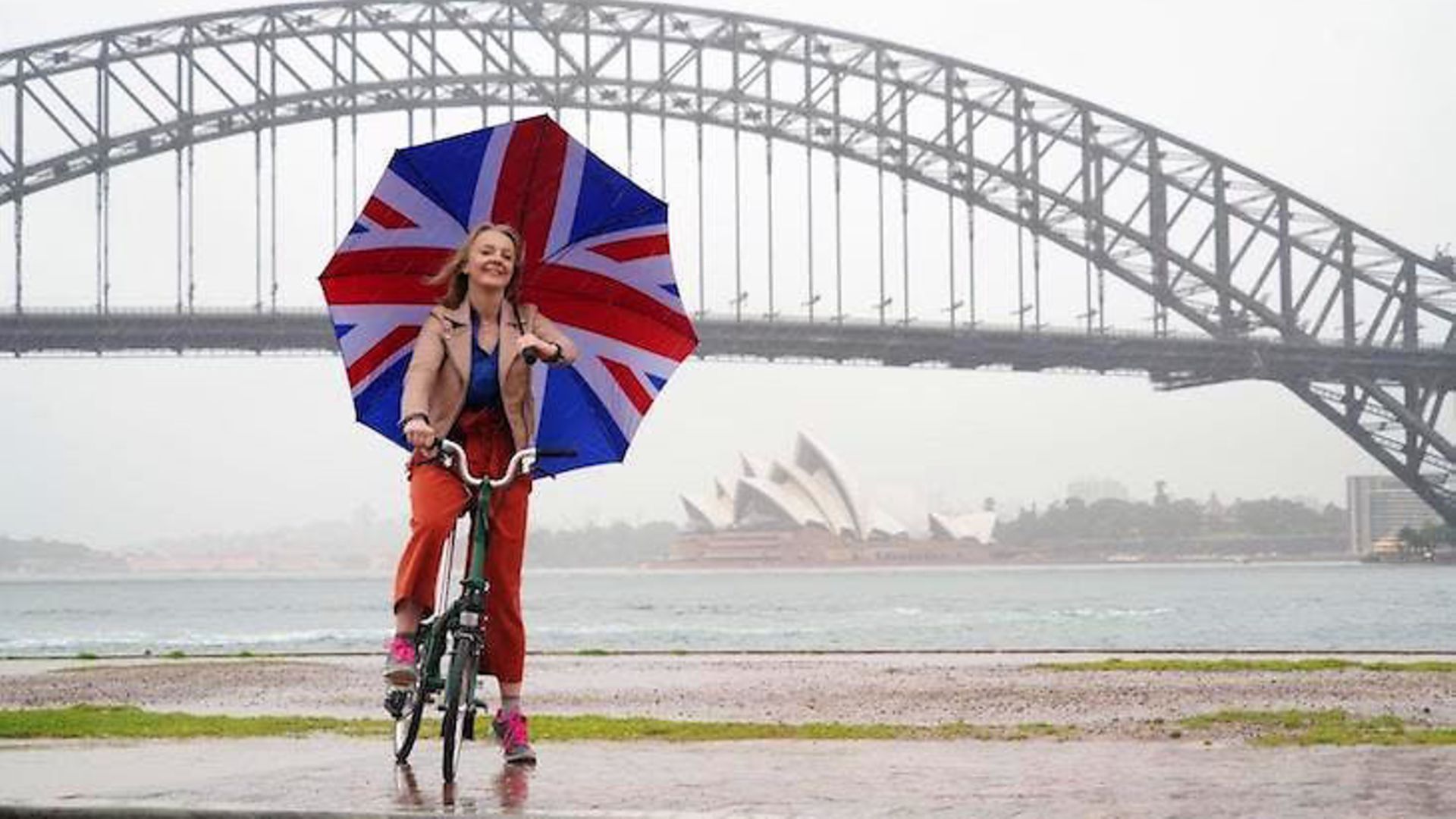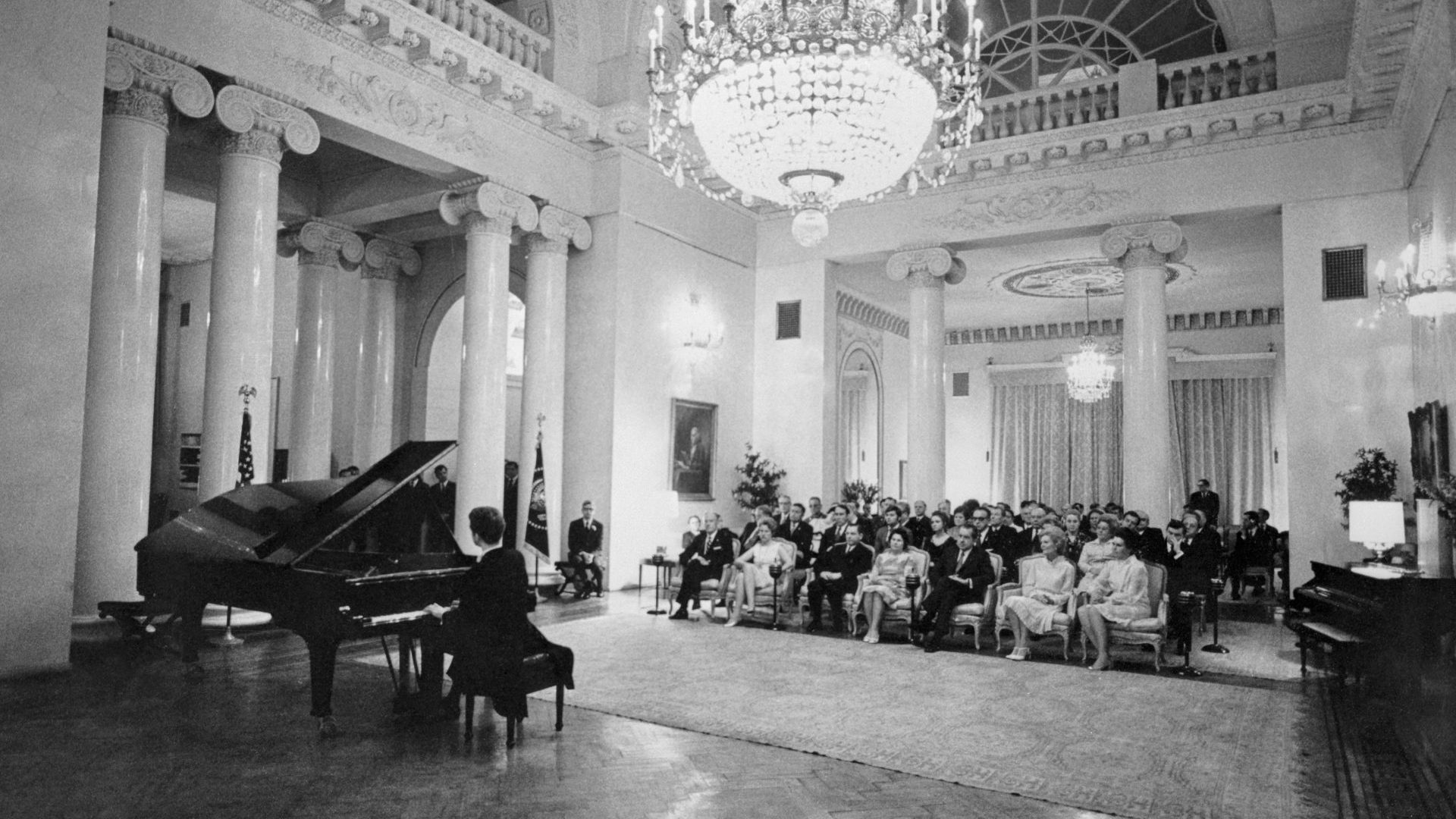James Ball had it pretty much covered, but what will Truss actually be like when she becomes PM? Assuming prime minister’s questions is not abolished on Day 1 (don’t bet against it) I predict she will struggle to give meaningful answers, blame everything on somebody else (Europe, France, Labour, Jeremy Corbyn, judges, workers, Remainers, Leavers, the Guardian and the BBC) and accuse Sir Keir Starmer of misogyny.
Perhaps TNE could print us a little cut-out-and-keep Bingo card?
Nigel Britton
I have just returned from my weekly trip to the newsagents to buy the latest TNE. I couldn’t resist diving straight in. James Ball’s “Why we can’t trust Truss” (TNE #302) made me laugh out loud as did Tim Bradford’s “What’s going on”? TNE is a bittersweet read.
As I walked along, head in TNE, laughing to myself and bumping into others, I worried for a moment that people might think TNE readers are dangerous, crazed individuals going round obstructing other people in Britain today. You may have guessed my punchline.
Alison Niman
Liz Truss has been described by the Papua New Guinea Courier as “a woman so dense that light bends around her”.
David Algernon Bryant
Am I alone in thinking the anointing of Liz Truss is deliberate and part of a bigger picture? She is so bad she will make an even bigger mess of things, only to flatten the path for the big saviour’s comeback…
Elke Zinsmeister
However bad Liz Truss is – and she will be awful – nobody could be as bad as Boris Johnson. Pretending Truss is as bad as Johnson is not a good strategic tactic – we need to focus on closely associating Truss with Johnson as an enabler and appeaser of this dangerous narcissist.
Daniel Banks
Via Facebook
A lost chance
Zoe Dean (Letters, TNE #302) is correct to say that the prospect of a People’s Vote evaporated when the Labour party was slaughtered in the 2019 general election, but she neglected to add that the outcome was almost inevitable as well as self-inflicted.
Jeremy Corbyn (and Jo Swinson’s Liberal Democrats) had painted Boris Johnson into a corner and were in a position to force the prime minister into accepting a People’s Vote as a condition towards an early general election. This would have severely dented Johnson’s image as the leader whose ambition was to “get Brexit done”, would almost certainly have led to a more favourable electoral outcome for both Labour and the Lib Dems and the UK would have been thrown a lifeline to stay in the EU.
Instead, Johnson and Dominic Cummings could have hardly believed their luck when faced with a challenge they were almost certain to win. Corbyn and Swinson’s mistaken and unnecessary decision to agree to a December election – in the belief they would overthrow the Tories – resulted in defeat for a badly divided opposition and handed the Tories a huge majority.
It’s worth noting, however, that over 53% of the electorate voted for parties offering a People’s Vote as a minimum, and had such a choice materialised we may have remained within the EU.
Dewi Jones
Pontypool, Wales
Extreme view
Pamela McCann (Letters, TNE #302) is worried about extremist parties gaining undue influence under a proportional representation voting system. This is understandable when we look at countries with a history of extremism and/or instability like Italy or Israel.
But the government we have now in the UK, and are about to get in spades under prime minister Truss, is one of far-right extremism. And that’s a result of our first-past-the-post system.
Peter Jones
Hampton, Middlesex
I used to be a deep PR geek. But then I noticed that however Italy changed its voting system, which it frequently did, the governments elected were indisputably Italian, with all the usual Italian volatility. Similarly, other countries with different PR systems elected governments in their national image. Electorates know how to make the system work.
So I have no illusions that PR in Britain would produce a dramatically different government. It would still produce a British government. But it might be a better British government.
Alec Cawley
Newbury, Berks
More delays
Re: “Think the queues at Dover are bad? You ain’t seen nothin’ yet” (TNE #302). The introduction of ETIAS checks that Jonty Bloom predicts will cause more delays have just been delayed from May 2023 to November 2023. Not that it makes a big difference in this mess.
Manfred Kluge
Via Facebook
Bravo Bonnie!
Bravo Bonnie Greer. Her articles on Marilyn Monroe and Gone With The Wind in issue #301 and #302 have been worth the cover price alone. She captured Marilyn’s genius and curse perfectly, with amazing showbiz anecdotes to boot!
Barbara Nuttall
Taxing issue
Paul Mason is right to predict that without much greater intervention on fuel bills “A new age of protest is coming” (TNE #302). It is instructive to look at what governments are doing to manage costs in other EU nations compared with our own pathetic efforts. Meanwhile Liz Truss and Rishi Sunak blether about cutting income tax.
I only hope that the protests that come remain peaceful.
Maxine Powles
When the crunch comes, the only way out is through state intervention. Ditching market economics in favour of a blended approach, as we did during Covid, is clearly the requirement necessary to handle this cost-of-living crisis.
Liz Truss says no handouts but yes to non-targeted tax cuts. Labour policy should be to force the energy companies to cut the cost of fuel, or nationalise them.
David Dansky
East Acton, London
No, Paul Mason – Sam Tarry was not sacked for going on a picket line, and Keir Starmer has not distanced himself from strikers. He has fought for them many times outside of politics.
Isabel Bamford
Via Facebook
True Morton
British newspaper readers didn’t have to wait until Michael Bartholomew’s 2008 biography to discover that HV Morton was a “racist snob”, in Charlie Connolly’s telling phrase (“Terrific writer, terrible man”, TNE #302).
In 1923, while reporting on the Tutankhamun discoveries, Morton encountered Ali Fahmy, the Egyptian husband of Marguerite Alibert (former mistress of the Prince of Wales, who would shoot Fahmy dead later that year at London’s Savoy Hotel). In my book The Prince, The Princess and The Perfect Murder, I include Morton’s contemporary description of Ali Fahmy “possessing… that dangerous magnetism of the eye which attracts more white women than untravelled people imagine. He was too well-dressed to look exactly right. Like most Oriental men, he reeked of scent…”
Andrew Rose
Farnham, Kent
Fast reactor
Tanit Koch’s “The brain and the bomb” (TNE #302) provided some fascinating viewpoints on nuclear weapons policy. One can only hope for more military officers on both sides like Stanislav Petrov, the Soviet officer who, at the height of tensions in September 1983, decided not to react to “blips” on a screen and thereby probably saved us from annihilation.
Our other hope is for repeats of the reported incident at a US Minuteman silo where some outside “influence” hovered over the base and is said to have simply switched off its electrical systems. Make of that what you will…
Christopher Sparey-Green
London SE1
Cruella Patel
Re: Tim Walker’s review of the new stage version of 101 Dalmatians (“Barking up the wrong tree”, TNE #302). Surely a missed opportunity with the casting of Cruella de Vil. Or is Priti Patel “resting”?
Peter Farrell-Vinay
Euro triumph
Rob Hughes rightly praises foreign coach Sarina Wiegman for her part in England’s triumph at the Women’s Euros (“Dutch dynasty that brought football home”, TNE #302). Was it not the case that the tide of the battle at Waterloo was turned in the allies’ favour by Wellington’s German troops from Hesse?
Plus ça change…
Duncan Stewart
Lovely, if overdue, to see women’s sport in TNE. Please don’t wait for another trophy to feature it again.
Katie Johnstone
Good Lords
May I propose – and I am aware that this is in total opposition to so many, including several correspondents in TNE #302’s Letters page – the excellence of the House of Lords?
One major flaw with the present set-up is the politically skewed and totally unacceptable way that its members are appointed.
Even as it is at present, the upper house of Parliament hosts some of the most erudite, knowledgeable, intelligent and influential people in the UK. BBC Parliament is certainly my favourite television channel when the House is in session. True informed debate, not cock-fighting.
The House of Lords does not need abolition: the system for appointment of its members requires radical change so that those who should be there because of their service to the country and their wisdom are there. And it needs to be given back its teeth so that its measured decisions have to be taken into account by the lower house. So that regimes that come up with outlandish ideas (such as deporting refugees to another country) are unable to use their at-present unchecked power.
A reformed and revitalised House of Lords will help to make sure that the country halts its present downward spiral towards totalitarian power. Reform, not abolition. Reinstatement of real power, not continued sidelining.
The House of Lords is one of the true jewels in our parliamentary democracy and a vital part of scrutiny of the government of the day. Just give it back its teeth!
Damian Duggan
Gainsborough, Lincolnshire
Dorries Day
Mitch Benn gives the wrong date in “Four little words that spell the end of satire” (TNE #302). Satire died on September 15, 2021, the day Boris Johnson appointed Nadine Dorries as culture secretary, specifically to dispose of Channel 4.
This was a channel she knew nothing about – how it was set up, how it is funded and probably nothing about its content either. It’s too woke for her to watch.
Jim Johnson
Galloway
Is anyone else suffering from the conflicting emotions that are currently keeping me awake at night? Namely, is the joy of hearing that Nadine Dorries might soon be out of the Department for Culture greater than the pain of hearing that Nadine Dorries might soon become a dame, giving her more time to spend writing books and defending Boris Johnson on TV?
Polly Silver



